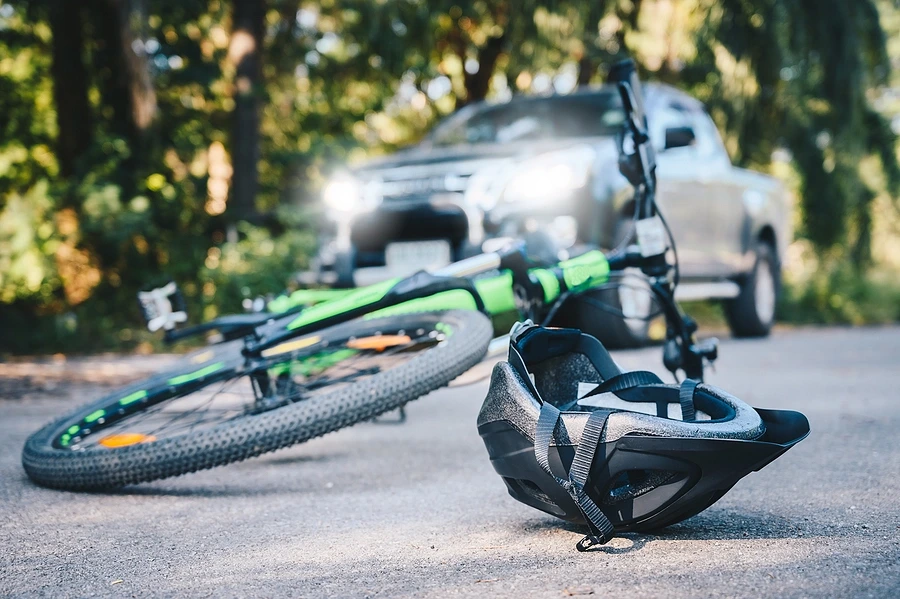Understanding Liability in Bicycle Accidents in South Carolina

Bicycling is a popular mode of transportation in South Carolina, known for its scenic beauty and bike-friendly roads. However, as with any form of transportation, accidents can occur, and it’s crucial to understand liability in bicycle accidents to ensure proper compensation for damages incurred. In this blog post, we will delve into the various aspects of liability in bicycle accidents in South Carolina.
Negligence in Bicycle Accidents
Negligence is a key factor in determining liability in bicycle accidents. Negligence occurs when a party fails to exercise a reasonable level of care, resulting in harm to another individual. In the context of bicycle accidents, negligence can take various forms, such as:
Motorist negligence:
- Failure to yield to cyclists at intersections
- Distracted driving, such as texting while driving
- Speeding or reckless driving near cyclists
- Failure to signal before making a turn
Cyclist negligence:
- Running red lights or stop signs
- Riding against traffic
- Failing to yield the right of way
- Riding under the influence of alcohol or drugs
Comparative Fault in South Carolina
South Carolina follows a comparative fault system, which means that each party involved in an accident can be assigned a percentage of fault based on their actions leading up to the incident. If a cyclist is found to be partially at fault for the accident, their compensation may be reduced proportionally to their degree of fault.
It’s essential to note that South Carolina follows a modified comparative fault rule, where a plaintiff can only recover damages if their fault is less than 50%. If the plaintiff is deemed to be equally or more at fault than the defendant, they may not recover any damages.
Duties of Care for Cyclists and Motorists
Both cyclists and motorists have a duty of care to ensure the safety of themselves and others on the road. This duty includes:
Cyclists:
- Obeying traffic laws and signals
- Riding with the flow of traffic
- Using hand signals to indicate turns
- Wearing reflective gear and helmets for visibility
Motorists:
- Giving cyclists at least three feet of clearance when passing
- Checking blind spots before turning or changing lanes
- Being mindful of cyclists at intersections and crosswalks
- Yielding the right of way to cyclists when required
Legal Recourse for Bicycle Accident Victims
If you’ve been involved in a bicycle accident in South Carolina, and believe that another party is liable for your injuries, you may have legal recourse to seek compensation for damages. Some common types of damages that bicycle accident victims may be entitled to include:
- Medical expenses
- Lost wages
- Pain and suffering
- Property damage
To pursue a legal claim for compensation, it’s advisable to consult with a personal injury attorney who specializes in bicycle accidents. An experienced attorney can assess the circumstances of your case, determine liability, and help you navigate the legal process to secure the compensation you deserve.
Steps to Take After a Bicycle Accident
If you’ve been involved in a bicycle accident, it’s essential to take the following steps to protect your rights and ensure a smooth claims process:
- Seek medical attention immediately, even if your injuries seem minor.
- Contact law enforcement to report the accident and document the scene.
- Gather contact information from witnesses and the other party involved.
- Take photos of the accident scene, including any vehicle damage or road conditions.
- Keep detailed records of your medical treatment and expenses related to the accident.
By following these steps and seeking legal guidance, you can strengthen your position in pursuing a successful claim for compensation following a bicycle accident in South Carolina.
Conclusion
Bicycle accidents can lead to serious injuries and financial hardships for victims. Understanding liability in bicycle accidents in South Carolina, is essential for establishing fault and seeking compensation for damages. By being aware of the duties of care for cyclists and motorists, knowing the legal recourse available, and taking the necessary steps after an accident, you can protect your rights and work towards a fair resolution in the aftermath of a bicycle accident.
